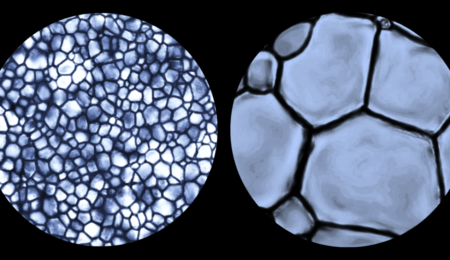Study analyzes long-term care patients to see if they retain COVID-19 immunity after vaccine
On March 2, the University of Ottawa and the Bruyère Research Institute launched the C19 Immunity Study which is mainly funded by the Government of Canada’s COVID-19 Immunity Task Force.
The goal of the study is to see if long-term care (LTC) patients retain complete COVID-19 immunity once they receive a vaccine.
Dr. Amy Hsu and Marc-Andre Langlois are the principal investigators of the C19 Immunity Study.
Together, they lead a group of 17 investigators and researchers who are in charge of collecting the blood samples of 8,000 vaccinated LTC residents and health care workers from Ontario, Quebec, and British Columbia.
Once all the data is gathered, the team will analyze patients’ immunity responses to the vaccines and take note of all related adverse effects.
Hsu, who is also the U of O’s Bruyère Research Institute Chair in Primary Health Care in Dementia, said the research is new to her career.
“Even though I’ve been doing research in LTC for a long time, tackling the question of immunity for COVID-19 is something that I never envisioned myself doing.”
Hsu hopes that this study is consulted to develop future COVID-19 safety guidelines for LTC homes.
“Patients in LTC are medically complex. For this reason, we want to know if the immunity they can gain from the vaccine continues to protect them over an extended period of time.”
“Once we know this, we can then determine whether this population needs a booster shot.”
Zaina Kahiel, an epidemiology master’s student at the U of O and a research coordinator for the immunity study, hopes Canada can make the most of the research found in the study.,
“This is the first study population through which Canada can get vaccine information. In our study, we’re looking at how vaccines react with LTC patients,” said Kahiel.
“We want to know if patients experience adverse outcomes with the vaccine, and we also want to know the level of immunity that the vaccine provides them. We are going pretty in-depth in terms of our analysis.”
Kahiel believes the study is crucial for the advancement of COVID-19 research and corresponding safety policies in Canada.
“I think a lot of people are hesitant to rely on what external studies say about the long-term effectiveness of COVID-19 vaccines,” said Kahiel.
“For this reason, it would be really good to have a study that was conducted in Canada. [It’s] better to accumulate data that is representative of our grandmothers and grandfathers.”
COVID-19 and Ontario’s LTC centres
LTC patients were the first to receive vaccinations in Canada because they are among the most vulnerable populations in Canada.
Since the beginning of the pandemic, 7,127 people in Ontario have passed away from the virus. According to the NIA’s Long-Term Care COVID-19 Tracker, 4,315 of those who passed away were long-term care patients accounting for approximately 61 per cent of all COVID-related deaths in the province.
As a result of these increasing numbers, on July 29, the Ontario government launched the Independent Long-Term Care COVID-19 Commission to ensure that LTC centres are able to provide patients with proper care.
This was formed after a report from the Canadians Armed Forces which outlined ways LTC centres in Ontario neglected to provide patients with proper health care during the pandemic.
While this is a rather extreme example of poor health care, it reveals a universal reality for LTC homes in Ontario, explained Hsu.
“Early-on in the pandemic, many homes did not have enough information to make the right decisions about how to protect LTC populations.”
So, with more information about the degree to which vaccines promote immunity, “LTC homes [can] implement measures and policies … that enhance patient and worker safety.”
Right now, as a precautionary measure, LTC homes abide by Ontario social distancing policies even though all residents within a home are able to receive vaccines.
As an additional precaution, only essential visitors, like support workers and caregivers are allowed to enter these residences. The Ontario Ministry of Health said public homes must ‘vigilantly’ follow public health guidelines to limit the spread of COVID-19.
It is projects like C-19 Immunity Study that will eventually allow policy developers and health care workers to know whether social distancing policies are necessary in LTC centres.





